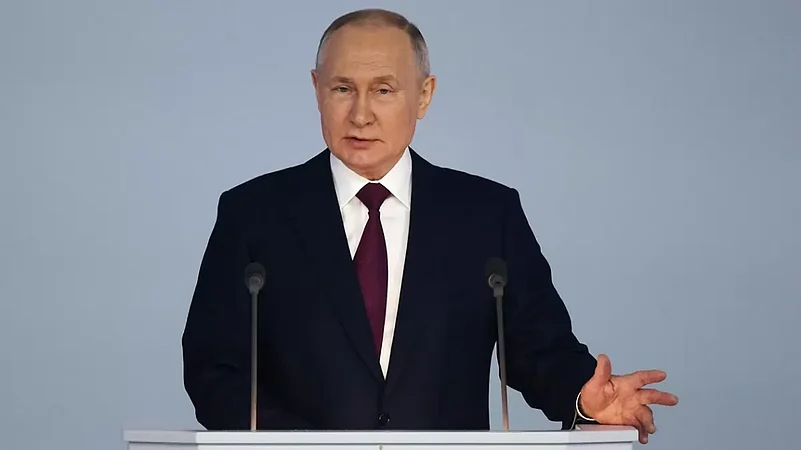In a surprising turn of events, Russian President Vladimir Putin recently held a three-hour meeting with Yevgeny Prigozhin, the leader of the infamous private military company known as Wagner. The meeting, which took place on June 29 at the Kremlin, included commanders from Wagner and marked a significant development following the short-lived rebellion led by Prigozhin and his mercenaries.
Prigozhin, who has a history of conflicts with Russia's top military officials, orchestrated an armed mutiny on June 24, leading his fighters into Russian territory. However, the rebellion came to an end when a deal was brokered for Prigozhin's exile to Belarus. The incident not only strained the relationship between Prigozhin and Putin but also posed a challenge to the Russian president's authority.
Kremlin spokesman Dmitry Peskov confirmed the face-to-face meeting between Putin and Prigozhin, shedding light on the discussions that took place. During the meeting, Putin provided an assessment of Wagner's actions on the battlefield in Ukraine, as well as the events of June 24. Furthermore, the president listened to the explanations presented by the commanders and explored potential options for their future employment and combat involvement, as AP reported.
Peskov emphasized that the commanders expressed their unwavering support for the head of state and the commander-in-chief, emphasizing their commitment to fighting for their homeland. A total of 35 individuals participated in the meeting, including Wagner commanders and the leadership of the company, with Prigozhin himself in attendance.
In an effort to regain control of the narrative following a turbulent period, the Russian Defense Ministry released a video featuring General Valery Gerasimov, the chief of the general staff of the Russian armed forces. Gerasimov, who was targeted by Prigozhin during the rebellion for alleged negligence in providing ammunition to Wagner fighters in Ukraine, made his first appearance since the incident.
While Moscow attempted to divert attention through these updates, tragic events unfolded in Ukraine. A Russian airstrike on a school in southern Ukraine resulted in the death of four adults who had gathered to receive humanitarian aid. The governor of Ukraine's Zaporizhzhia region condemned the incident as a war crime. The attack, which involved a guided aerial bomb, claimed the lives of three women and a man, while injuring eleven others.
The airstrike on the school was part of a larger assault by Russian forces, who targeted ten settlements in the province within a single day. Although Russia denies deliberately targeting civilian locations, accusations of war crimes and the intentional targeting of civilians have plagued the country since its invasion of Ukraine in February 2022. In fact, the International Criminal Court issued an arrest warrant for President Vladimir Putin in March, holding him personally responsible for the abductions of children from Ukraine.
Investigations into these war crimes are underway in several countries, including Ukraine, Estonia, Latvia, Lithuania, and Poland. The International Center for the Prosecution of the Crime of Aggression against Ukraine, located in The Hague, is actively assisting in these investigations.
Zaporizhzhia province, which houses Europe's largest nuclear power plant, has been a focal point of the conflict. The Russian forces seized the plant early in the war, and the province was one of four regions illegally annexed by Putin last year. Retaking Zaporizhzhia is a crucial objective of the ongoing Ukrainian counteroffensive.
Recent reports from the Ukrainian presidential office indicate that Russian aerial assaults have continued across Ukraine. In the Donetsk region, residential areas of six cities and villages were bombarded with aircraft, missile systems, and heavy artillery, resulting in injuries. Additionally, the regional capital of Kherson, which shares its name with the province, was targeted by Russian attacks, leaving a 66-year-old woman wounded.


























